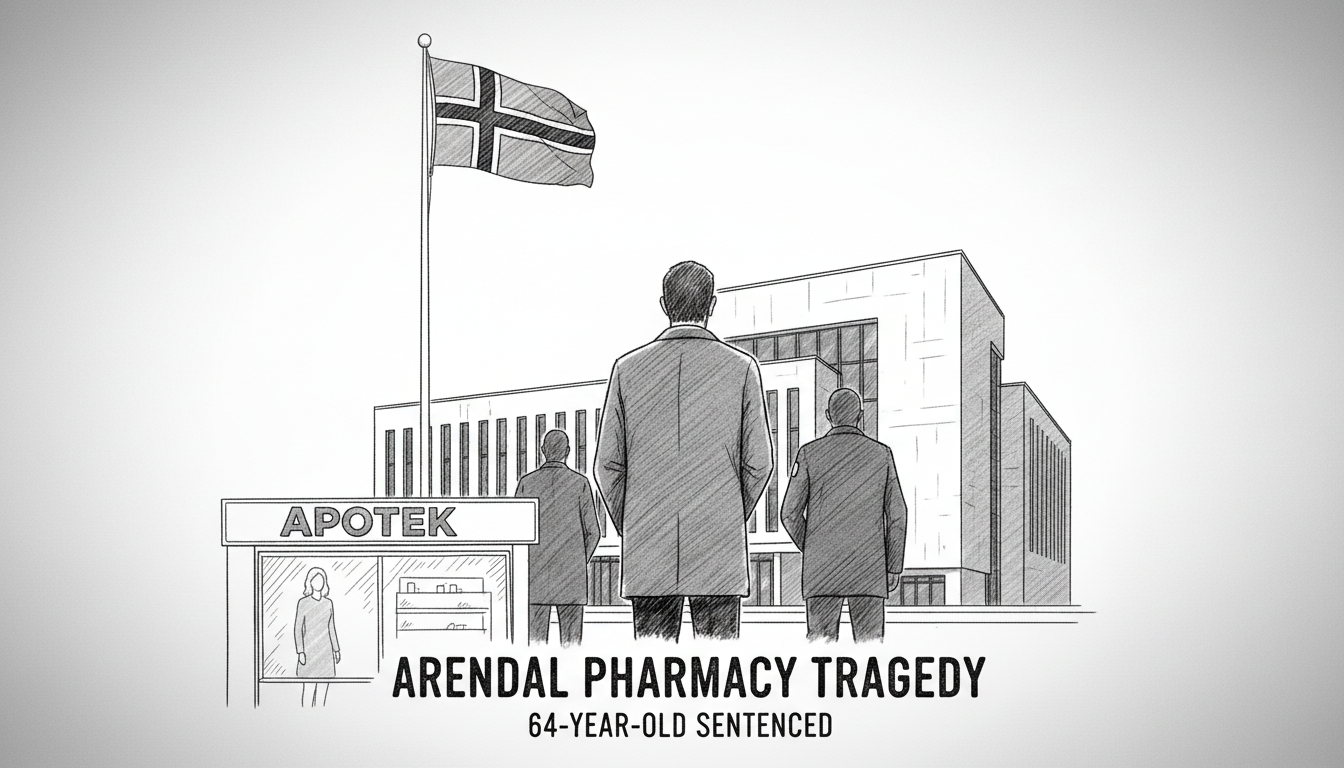A Norwegian court has convicted a 64-year-old man for the fatal stabbing of Miriam Daniela Ayres Cea outside her workplace in Arendal. The 35-year-old victim was attacked from behind while placing an advertisement sign in the pedestrian street last April.
The appeals court determined the defendant from Grimstad acted with severe mental illness at the time of the crime. Judges found he could not be held criminally responsible due to his psychological state. The court ordered compulsory mental health care instead of prison.
Court documents reveal the attacker showed no emotion after the killing. Surveillance footage captured him walking calmly away from the scene. He displayed no signs of distress or recognition of his actions.
The ruling states the man posed a qualified and real danger of committing new murders if released. This assessment came despite his claims of innocence and assertions about his mental health.
Norwegian legal experts note this case highlights the country's approach to mental health and criminal responsibility. The justice system distinguishes between punishment and protective measures for offenders with severe psychological disorders.
The court found no connection between the attacker and his victim. Evidence suggested Cea was simply in the wrong place at the wrong time. She became the random target of a man experiencing severe psychiatric symptoms.
This tragic case reflects broader challenges in balancing public safety with mental health treatment. Norway's system prioritizes therapeutic intervention over punishment for offenders deemed mentally incompetent.
The defendant must pay substantial compensation to Cea's family. The court ordered 260,000 kroner to each of her three closest relatives plus funeral expenses. These payments acknowledge the profound loss suffered by her husband and parents.
Local residents expressed relief at the court's decision while acknowledging the tragedy's lasting impact. The case has sparked discussions about mental health services and public safety in Norwegian communities.
Arendal authorities have increased security measures around commercial areas since the incident. Business owners and employees have received updated safety guidelines for working in public spaces.
The conviction follows similar cases where mental illness complicated criminal proceedings across Scandinavia. Nordic countries generally emphasize rehabilitation and treatment while maintaining strict protective custody measures.
Mental health professionals will determine the duration of the man's compulsory care. His release depends on demonstrating he no longer poses a danger to society. Regular evaluations will assess his treatment progress and potential risk factors.

